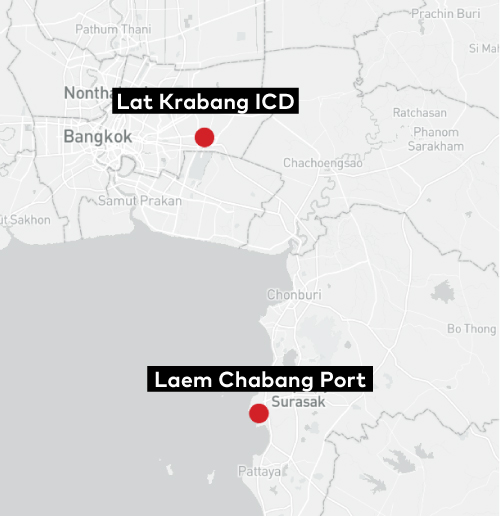Starting a Container Trucking Company in Thailand
Are you looking to start a trucking company in Thailand? The container trucking industry is a competitive one, and to be successful, one has to understand the Thai business culture and climate in the context of the trucking industry. Use our straightforward guide to find out how you can get started!
Step 1: Decide on your business model
Firstly, you will have to decide whether to adopt the owner-operator model or hire drivers.
In Thailand, it is often the case that owners hire drivers instead of adopting an owner-operator model.
What is an owner-operator model? Basically, it means owning the prime mover and driving it too.
The benefit of the owner-operator model is that one can possibly earn a larger portion of the revenue if he were to own the prime mover and also drive it himself, due to savings from overheads. The owner-operator also does not have pressure to charge at above average price in order to earn a comfortable margin.
However, due to the relatively large cash outlay needed to own a prime mover, most trucking companies are usually formed as subsidiaries of their sister freight forwarding companies, or have formed sufficient business ties before incorporating. Current players are thus usually seasoned veterans in the industry with an established network of customers and partners, as well as strong financial backing to purchase their fleet and hire drivers.
The opportunistic investor may thus find it hard to invest in a small fleet of prime movers and hope to find customers thereafter, as the industry can be highly competitive. It is thus recommended for businesses to secure customers in advance, in order to succeed in the highly competitive Thai trucking market.
Step 2: Set up a Private Limited Company
Briefly,
the most suitable company structure for a trucking company in Thailand would be a private limited company. Do take note that your company has to be 51% owned by Thai nationals at the minimum, in compliance with Thai national laws. You can receive information on registering a business entity from the Department of Business Development, Ministry of Commerce’s website.
Step 3: Select the Market You Wish to Target
There are two key trucking market segments in Bangkok, Thailand:
- Haulage to and from the warehouse to port, which includes stuffing and unstuffing;
- Terminal Transfer (TT) between Lat Krabang ICD and Laem Chabang port

Usually, hauliers that are located away from the port will tend to focus their business on segment 1), while hauliers that are located near the port will focus on 2). You can plan the location of your office by choosing which market segment to focus on.
It should also be noted that usage of laden containers for domestic transportation is not allowed in Thailand – containers have to be sealed.
Step 4: Obtain Necessary Permits, Licenses and Insurance
In Thailand, trucking companies will have to register their prime movers and trucks with the . You will need to ensure that your vehicles have the necessary vehicle registration plate issued by the DLT.
Secondly, trucking companies will have to obtain a GPS system and attach it to their prime movers . Furthermore, the GPS system must come from a vendor that is pre-approved by the DLT.
For prime movers/trucks going in and out of the respective ports in Thailand, vehicles will also need to be registered with the respective port operator. The typical process is to submit truck license plate, along with the owner of the truck, to the respective port operator.
Insurance
With adequate protection, even loss or damage of cargo on the part of your staff’s negligence may be claimable. However, it should also be noted that insurance is not required in Thailand.
Step 5: Capital Expenditures, Monthly Overheads and Costs to Note
In Thailand, a typical, brand new, entry-grade Isuzu prime mover will cost around 2.5 million baht. You can also have the option between diesel or Clean Natural Gas (CNG)-run prime movers/trucks. Other than that, consider the location of your office and HQ as part of your capital expenditures. Rental varies, and it depends on whether you are located near the port or away from the port.
Now, monthly overheads and miscellaneous expenditures includes vehicle tax and VECOM inspection (5 years from purchase of brand-new prime mover).
- There is a vehicle tax of typically 10,000 baht a year for both prime movers and trailers. Upon paying the vehicle tax, your driver will be issued a pink slip to display at the vehicle windscreen as proof of payment. Do note that the vehicle tax is dependent on the size of your vehicle’s engine, as well as the number of axles your trailer has.
- Prime movers need to go on mandated VECOM inspections every five years from the date of purchase.
Conclusion
In conclusion, setting up a business is never an easy feat and we hope that this guide will give you a better understand of the trucking business in Thailand and the associated costs.
Keen to Get Started?
If you’re setting up a trucking company, Haulio provides a digital solution for you to manage your fleet – the Haulio Connectivity System. Get in touch now if you are interested to find out more!



